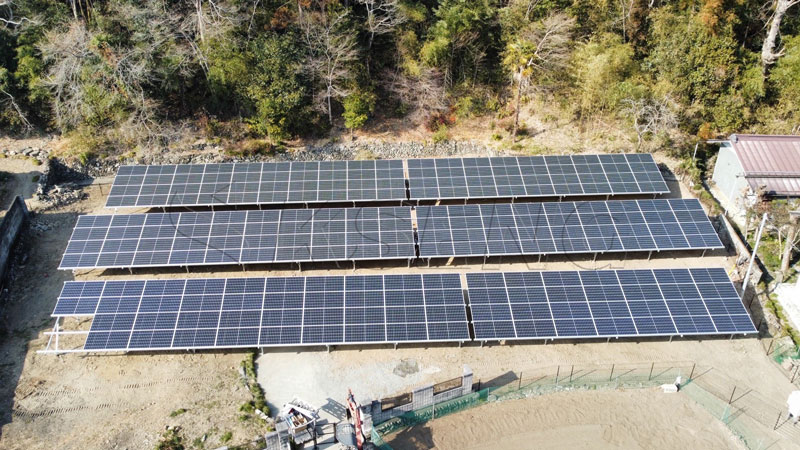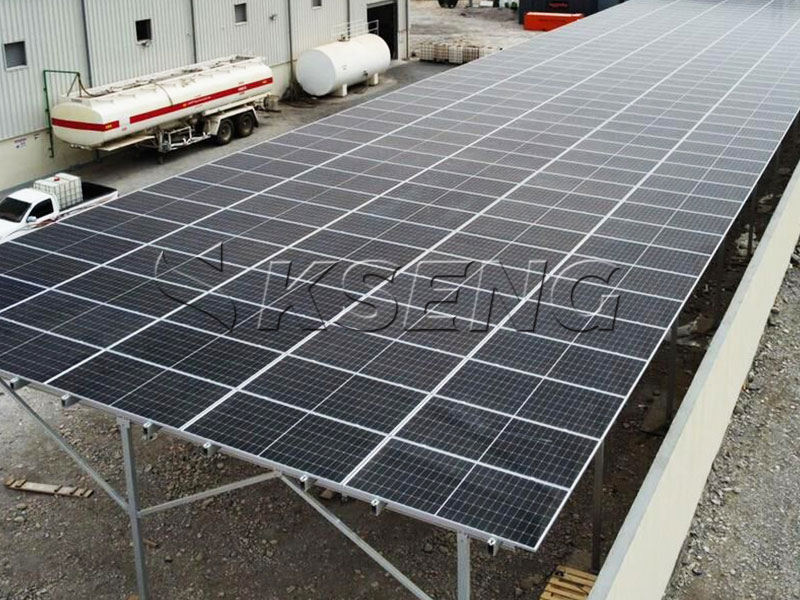Views: 0 Author: Site Editor Publish Time: 2021-11-08 Origin: Site








The difference between on-grid solar systems and off-grid solar systems is that off-grid systems rely on solar power generation to be stored in batteries, and then converted into applicable voltages through inverters. On-grid solar systems are connected to the mains grid. On-grid solar systems do not have storage devices for storage, and directly convert the voltage required by the national grid to the required voltage for parallel electricity, and give priority to the use of home businesses. Unused electricity for home businesses can be sell to country
On grid solar system
A grid-tied system is a system that connects a solar energy system to the utility grid. The excess electricity generated is sent to the utility grid and consumers are compensated. Likewise, when the system is running low on electricity, consumers can draw electricity from the grid and pay for the units used.
Connecting to the grid is beneficial because consumers do not need to buy expensive backup batteries to store excess energy. This makes grid-tied systems more popular in the residential space.
many who choose to install an on-grid solar system want to cover 100% or nearly 100% of their energy usage. This can be achieved with on-grid systems as well.
Depending on the time of day you use electricity, your solar system can produce excess energy. Instead of sending it to batteries as you would in an off-grid system, you can send it to the grid and you will be compensated for that electricity.
By connecting to the grid, you get access to electricity whenever you need it. However, you're also subject to some rules. If you have a grid-tied solar system and the grid goes down, you will not have electricity, unless you opt for a grid-tied solar system with battery backup.
Off grid solar system
Off-grid means the system works independently and you are completely dependent on solar energy and energy stored in batteries to power your home or business. Consumers are not connected to any utility's power system. The system uses batteries to store the solar energy generated.
Although off-grid systems are self-sufficient, they require higher fees as consumers must purchase battery packs, solar panels, grid boxes, inverters, charge controllers, mounting structures and system balancing. Solar panels generate and store electricity during the day and use it at night.
This system is ideal for places with frequent power outages. In rural and remote areas, off-grid solar systems can facilitate independent and sustainable power generation.
Most off-grid solar systems are designed to produce a certain amount of “extra” electricity in the daytime, which is sent to batteries for storage. The energy stored in those batteries can then be accessed when the system is not producing, like at night or during cloudy weather.

Depending on your energy goals, systems can be sized to produce enough excess electricity in the daytime to cover your entire energy usage around the clock. Paired with an extra battery gives you peace of mind and can provide stored power in case this happens
However, despite even the best and most accurate estimates, the weather is unpredictable. If you experience abnormally cloudy weather several days in a row, your system may not be able to produce enough electricity to charge the batteries and fulfill all your needs.
The solar system is working independently from the power grid. If there’s a bad storm or event that knocks out the power, your solar system can continue operating. You won’t notice changes in your service or access to electricity.
